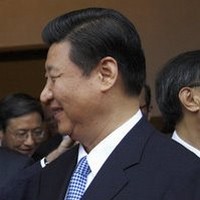At the Chinese Communist Party’s once-in-a-decade leadership reshuffle currently taking place in Beijing, outgoing party General Secretary and Chinese President Hu Jintao warned party cadres that the CCP’s very survival depended on its ability to rein in corruption. But on the party’s “core interest” of Taiwan, Hu displayed noticeably less urgency.
Hu’s approach to Taiwan policy, which has combined opposition to independence with an outreach to all sectors of the island's civil society, led to spectacularly improved ties between the former arch enemies. In his address to the party congress last week, Hu reiterated calls for peaceful unification, military confidence building measures and the signing of a China-Taiwan peace agreement.
However, one item in Hu's speech that made Taiwanese observers prick up their ears somewhat was the mention, unprecedented for Hu, of the so-called 1992 Consensus, a doctrine that implicitly tolerates Taipei’s self-portrayal as the Republic of China (ROC), as opposed to the People's Republic of China (PRC), so long as there are no moves to change the status quo in terms of a declaration of independence. But while such a change in rhetoric is necessary if the two sides are ever to start meaningful political exchanges, all signs are that Hu’s designated successor, Vice President Xi Jinping, is unlikely to push forward on unification. Neither does Taipei’s distinctively cool response to Hu's speech suggest that the pace for cross-strait rapprochement will get any quicker.

